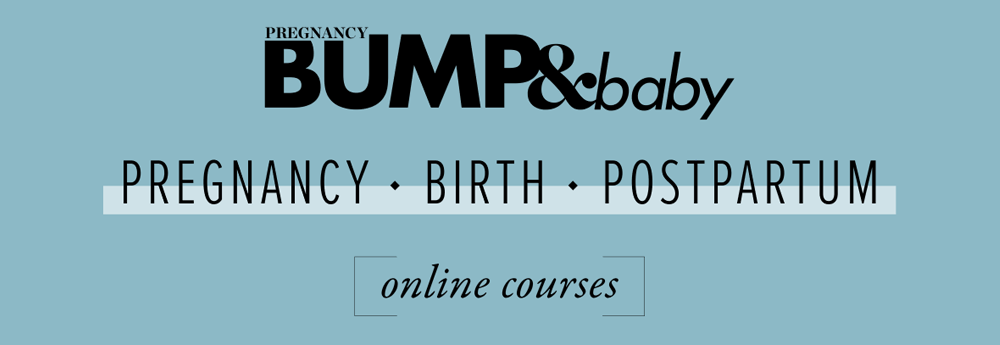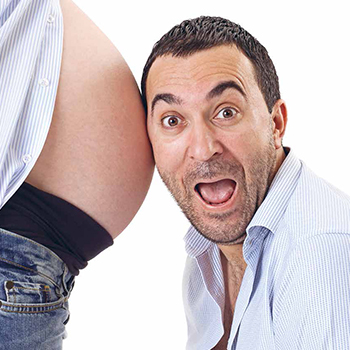
Immunisations are not just for kids – pregnant women need to consider their immunisation status, too. Theo Brandt of the Immunisation Advisory Centre explains how immunisation during pregnancy helps protect you and your unborn baby against some serious diseases, giving them an excellent start in life.
Pregnancy is a time when many mothers – and often their partners, too – will take extra care with their diet, their sleep, and other things that will give them and their unborn baby the best start in life. As your body is your temple, you become very aware of everything that goes in, and how it might affect your temple’s most important visitor: Your unborn baby.
Being immunised during pregnancy is like training up your temple guards. These guards not only help defend your own body against a few nasty and preventable diseases, but they also teach your baby’s own immune system what to do. So when your baby is born, they have their own temple guards ready to help until their primary immunisation course is completed (at six weeks, three months, and five months of age). It is worth explaining the basics of how vaccines work, to help you understand that what they do is natural and very safe.
The basics of immunity
The first time you come in contact with a germ (like a virus or bacteria), it takes time for your immune system to respond and you can get sick. Part of the response is to produce antibodies: Special structures that recognise the disease and latch on to it, alerting your immune system to the danger. Once your body has a memory of the infection, the immune system can work quickly making lots of antibodies, and helping destroy the germ the next time you come in contact with it, preventing you from getting sick, or making the sickness less severe.
Vaccines also teach your body’s immune system how to recognise diseases, stop them, and make a memory of that disease. They do this using weakened forms or fragments of the disease, called antigens. It’s not enough of the disease to make you sick, but enough for your immune system to recognise it, work out a good defence plan, and store that experience away for later use. The way your immune system responds to a vaccine is the same as the way it responds to the disease itself. It makes the same antibodies and other types of protective cells. As well as the antigens, vaccines have other components to preserve the vaccine and make sure your body’s immune response is as effective as possible. All of these components are used and safely recycled out of the body in a matter of hours or days.
When you’re immunised during pregnancy, your unborn baby doesn’t get the vaccine, as your placenta prevents any of that material passing over. But once your immune system has made the antibodies, these CAN pass over the placenta. Put simply, your body has a natural response to a vaccine, produces antibodies, and shares those with your unborn baby. Your baby will have the protection of these antibodies until they make their own with their immunisation course as an infant.
Recommended vaccines during pregnancy
Influenza and whooping cough (pertussis) immunisations are recommended and funded for pregnant women in New Zealand. These are used all over the world, with no evidence of harm to the mother, or to the unborn or newborn baby.
Influenza
Influenza (or “the flu”) is caused by a virus. You get it from being coughed or sneezed on, by direct contact with an infected person, or by touching a contaminated surface. Flu can be anywhere. If you get the flu, you could get any or all of these symptoms: Fever, muscle aches, headache, lack of energy, dry cough, sore throat, and possibly a runny nose. The fever and body aches can last three to five days, and the cough and lack of energy may last for two or more weeks.
Recent New Zealand research has shown that most people who get the flu don’t even know, as they show no symptoms. But you could still catch the flu from them.
If you’re pregnant and get the flu, you have a much higher risk of developing complications like pneumonia, being admitted to intensive care, experiencing premature labour, and/or delivery problems. You also have a higher risk of dying from influenza than women who are not pregnant.
Your unborn baby is more likely to be born small for age, become distressed in labour, and/or be delivered by Caesarean. After being born, babies less than a year When your newborn is under six weeks, old, and particularly those less than six they’re too young to receive their first months of age, have the highest risk of vaccine dose, but are at greatest risk from whooping cough. To provide the best all children for getting influenza and protection for your newborn baby against developing serious complications. But there is no immunisation available against influenza until six months of age.
The antibodies you make in response to the vaccine circulate in your bloodstream and help protect you from getting sick from influenza. They also travel across the placenta into your baby’s bloodstream and help protect your baby from influenza for the first few months after birth, the vulnerable time for your baby.
You can have the vaccine anytime during pregnancy which will help protect your baby for up to six months after birth. The vaccine is free during the influenza seasons (usually early march to August).
Whooping cough
Whooping cough (also called pertussis) is a chest infection that is very easy to catch and lasts for weeks or months. Nine out of 10 people will catch it if they are living in the same house as someone with whooping cough, unless they are fully immunised. Whooping cough is most infectious before and a few weeks after the cough begins, so you can pass it on before you know you have it.
For children and especially babies, whooping cough can be very, very serious. Up to half of all babies with pertussis end up in hospital. One in six very young babies who are admitted to intensive care with whooping cough will die or be left with permanent brain damage due to lack of oxygen.
In children and older babies, a distinctive “whooping” sound is made at the end of a coughing fit as the child tried to breathe through narrowed airways. Infants may stop breathing and go blue from lack of air, instead of having coughing fits.
The cough can last for months and be very disruptive, even for older children and adults. Severe repeated coughing fits can break ribs, cause bleeding in the eyes and nose and, of course, result in loss of sleep. However, in many cases, teenagers and adults may have an annoying cough, but are often unaware that they have whooping cough — and they can still pass it on to others, including unprotected babies.
Providing protection for young babies
When your newborn is under six weeks, they’re too young to receive their first vaccine does, but are at greatest risk from whooping cough. To provide the best protection for your newborn baby against whooping cough, it is recommended that a dose of a whooping cough (pertussis) vaccine is given during the third trimester of each pregnancy. This timing allows enough time before baby is born for plenty of anitbodies to be transferred from you to them.
By immunising yourself in pregnancy, your baby is protected in two ways:
- For the first few months of life, your baby is provided with protection to fight whooping cough.
- You are protected from catching whooping cough and passing it to your baby.
The protection given to your baby is only temporary, and it is important that your baby is also immunised on time at six weeks, three months, and five months of age. This ensures they remain protected, as they are still at risk of severe whooping cough disease as well as a range of other diseases that vaccinations protect against.
Studies, including some from the UK and in New Zealand, have shown that giving the whooping cough booster vaccine in pregnancy is very safe for both mother and baby. Vaccine safety is continually monitored worldwide.
Common questions
How well protected will my baby be from whooping cough?
A clinical study in the UK has shown that more than nine out of 10 newborn babies whose mothers were vaccinated in pregnancy were protected against severe whooping cough for the first few months of life. This is now being supported by other studies worldwide. It is still possible that your baby may catch whooping cough from someone else, but by being protected by your anitbodies, your baby will be better able to fight the disease and get less sick.
What about side effects?
The most commonly reported side effects from the influenza or whooping cough immunisations are redness, soreness, and/or some swelling at the site where the jab was given. Some women may experience a mild fever, headache, or aches and pains. Discuss the best methods to relieve any discomfort you may experience with your midwife, practice nurse, or doctor before you have your immunisations. For all immunisations, as with medications and foods, an extremely rare allergic reaction called anaphylaxis can occur. Anaphylaxis occurs about one to three times in every one million doses. All vaccinators in New Zealand have training and equipment to deal with this situation in the unlikely event of it occurring.
What about other people in my family?
Household members and others who will have close contact with your baby can purchase influenza and whooping cough immunisations through their family doctor or some pharmacies. Reducing the risk they will get sick with influenza or whooping cough reduces the risk they will expose your baby to those diseases. It is good to check that all children under 18 years of age are up-to-date with their immunisations. Older children and adults only need one whooping cough immunisation to boost their protection against whooping cough, even if they haven’t been immunised before. For everyone, except pregnant women, a 10-year gap is recommended between whooping cough booster immunisations.
BUMP&baby
BUMP & baby is New Zealand’s only magazine for pregnancy and early babyhood. Our team of mums and mums-to-be understand what it’s like to be pregnant in this connected age, and that’s why BUMP & Baby online is geared toward what pregnant women and new mums really want to know.
Other articles of interest
What to do (and not do) during labour
This one’s for your birth companion – anyone whom you’re planning to have in the delivery room while you’re in labour and giving birth needs to read it.
Pregnancy symptoms… For dads!
Thought it was just mums-to-be who get morning sickness, gain weight, and have mood swings? Dubbed “Couvade syndrome”, pregnancy symptom-sharing by dads-to-be is far more common than you may realise.







